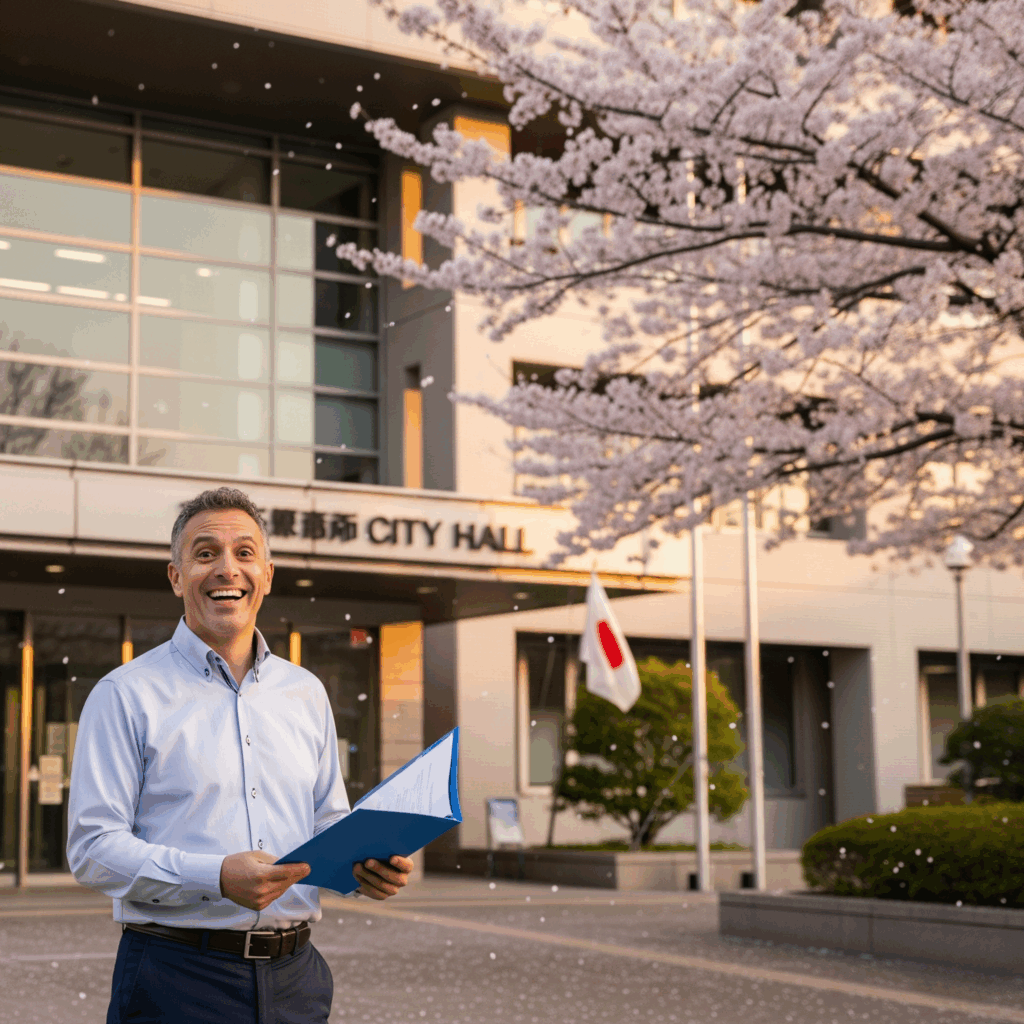Applying for permanent residency in Japan is a big step — and one of the trickiest parts is finding a guarantor for permanent residency in Japan. For many midlife expats in their 40s, 50s, and 60s, the Guarantor’s Letter of Guarantee (身元保証書 / mimoto hoshousho) causes the most stress and confusion.
I’ve seen my foreign employees, students, and friends stress over this step: “Who can I ask? Will I be a burden? What if my guarantor has to pay for me?” Let’s clear things up and make it simple.

Who Can Be a Guarantor for Permanent Residency in Japan?
Your guarantor for permanent residency in Japan must be:
- A Japanese citizen, or
- Permanent resident of Japan
They don’t need to be family. Many applicants ask employers, long-term friends, or respected community members.
Guarantor Responsibilities for Permanent Residency in Japan
Here’s the key point: a guarantor is not financially responsible for you.
By signing the form, they only promise to:
- Encourage you to obey Japanese laws.
- Remind you to pay taxes and live responsibly.
- Act as a contact if Immigration needs help reaching you.
It’s a moral pledge, not a legal or financial contract.
What the Form Looks Like
The Guarantor’s Letter of Guarantee is just one page. It asks for:
- Guarantor’s name, address, phone number
- Relationship to you (friend, employer, spouse, etc.)
- Signature and personal seal (inkan/hanko)
- A few short pledge statements (follow laws, pay taxes, help if needed)
When my foreign staff first saw it, they said: “I expected 10 pages of legal text — but it’s so simple!”
How to Ask Someone to Be Your Guarantor
This is often the most intimidating part, but honesty goes a long way.
- Choose someone who knows you well. A boss, colleague, or long-time friend.
- Reassure them. Many Japanese assume it’s a financial burden — show them the one-page form.
- Express gratitude. A thank-you note, coffee, or small gift is deeply appreciated in Japanese culture.
FAQ: Do Guarantors Have to Pay for Repatriation Flights?
Some guarantor forms mention covering “transportation fees for repatriation.”
This sounds scary, but here’s the truth:
- It’s a traditional, symbolic clause, not a legal obligation.
- Immigration expects applicants to cover their own travel costs.
- Guarantors are not billed for airfare or debts in normal cases.
👉 Key Point: Being a guarantor does not mean paying for someone else’s ticket home. It’s about being a trusted supporter in Japan.
Download the Guarantor Form for Permanent Residency in Japan
For your convenience, here are the official forms provided by the Immigration Services Agency (法務省):
And the main page where both are listed:
👉 永住許可申請1 / Permanent Residence Application 1 (法務省)
Aya’s Perspective
Over the years, I’ve seen many foreigners — including my employees in their 40s and 50s — hesitate to apply for permanent residency because of this guarantor step.
One teacher worried endlessly that his guarantor would be financially tied to him. When I explained the truth, he laughed in relief and said: “That was the last thing holding me back.”
Another employee, a woman in her 50s, told me: “I thought asking would be a burden, but my Japanese colleague was happy to help.”
These moments remind me that permanent residency isn’t just paperwork. It’s about community, trust, and the small bonds that make Japan home.
If you’re preparing to settle long-term, you’ll likely need to transfer savings or pensions into Japan. Traditional banks charge high fees, but Wise makes international transfers fast and affordable — something many of my foreign staff rely on during their relocation.
Final Thoughts: A Gentle Reminder

Japanese people are kind and value relationships, time, and commitments. But respect goes both ways: if someone doesn’t keep their word, distance is quietly kept.
For foreigners seeking a life here, remember that your promises, documents, and actions carry meaning. They show respect — and in Japan, respect opens doors.
If you live with that spirit, you’ll discover not just a visa status, but also a community ready to welcome you. And when it comes to the guarantor requirement for permanent residency in Japan, remember — it’s not a financial burden, but a step that reflects the trust and respect at the heart of Japanese life.🌸

